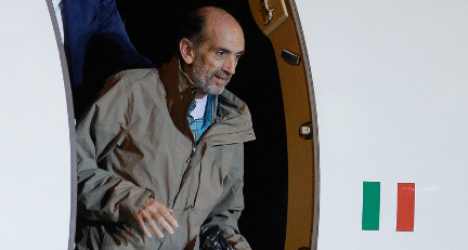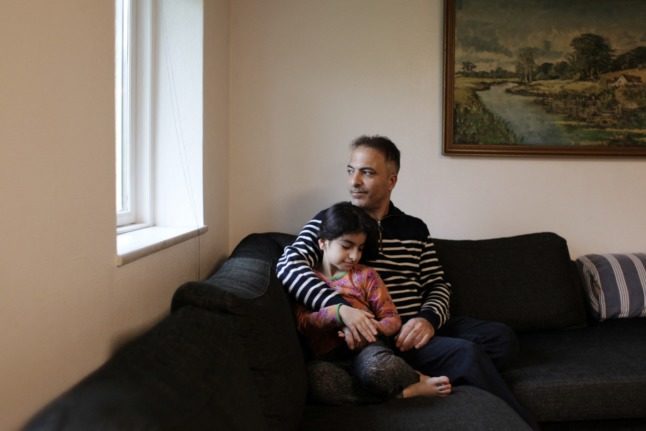In an interview with Foreign Policy magazine, a man claiming to be a hostage negotiator said he hand delivered the cash in order to free Quirico and Belgian teacher Pierre Piccinin last September.
But today Italy’s Ministry of Foreign Affairs denied the claim. “No ransom was paid for the release of Italian Domenico Quirico,” spokesman Niccolò Fontana told The Local.
READ MORE: Italy paid $4 million to Syrian kidnappers: report
The official response stands in stark contrast to the claims made by Motaz Shaklab, described as a member of the opposition Syrian National Council.
Shaklab said he was contacted by a friend to locate the Europeans after they were kidnapped in April, spending three months negotiating between the group holding the pair and the Italian authorities.
After settling on the $4 million fee, Shaklab reportedly flew to Lebanon where he was met by an Italian. The two then travelled to the Syrian border where the cash was delivered, securing the release of Quirico and Piccinin four days later, Foreign Policy said.
Quirico was flown to Rome after his release and subsequently published an account of his 152-day ordeal, in which he said he was subjected to mock executions and twice tried to escape.
READ MORE: Italian faced 'mock executions' in Syria
Reports of the alleged ransom payment come the same week the Italian government agreed to host a transfer of Syria’s chemical weapons next month.
The Calabrian port of Gioia Tauro, in southern Italy, will host the February operation, during which 500 tonnes of Syria’s deadly chemicals will be moved from a Danish ship to a US vessel.
The transfer is part of a UN-backed to remove the weapons from the war-ravaged country, nearly three years into a conflict in which more than 100,000 people have been killed.
READ MORE: Calabrian port to host Syria chemical transfer
Don't miss a story about Italy – Join us on Facebook and Twitter.



 Please whitelist us to continue reading.
Please whitelist us to continue reading.
Member comments